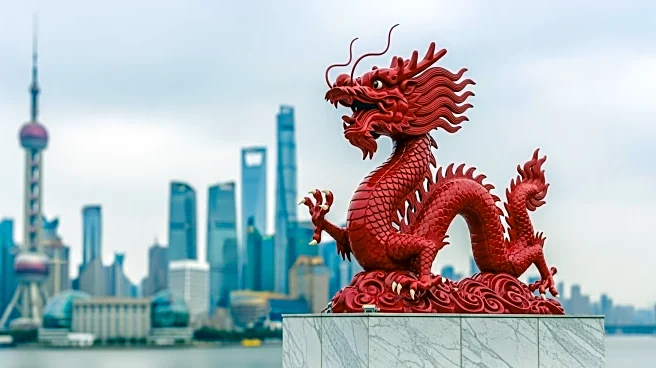What's Happening?
Mitul Kotecha, Head of FX & EM Macro Strategy, Asia at Barclays, has highlighted concerns regarding China's anti-involution campaign, which aims to reduce excessive competition and work intensity. While the campaign has helped ease deflation pressures, it has also raised concerns about its impact on investment spending and economic growth. Kotecha notes that despite these concerns, the artificial intelligence boom continues to drive stock market momentum, suggesting a complex interplay between policy measures and market dynamics.
Why It's Important?
China's anti-involution campaign is significant as it reflects broader efforts to reshape economic and social dynamics within the country. The campaign's potential impact on investment spending could have ripple effects on global markets, given China's role as a major economic player. Reduced investment growth may affect industries reliant on Chinese capital and influence global supply chains. However, the ongoing AI boom suggests that technological advancements may offset some of the negative impacts, highlighting the importance of innovation in sustaining economic momentum.
What's Next?
Stakeholders will closely monitor the effects of China's anti-involution campaign on investment patterns and economic growth. Companies and investors may need to adapt their strategies to navigate potential shifts in market conditions. The continued growth of the AI sector may provide opportunities for investment and innovation, potentially mitigating some of the campaign's adverse effects. Policymakers may also consider adjustments to balance the campaign's objectives with economic growth targets.









